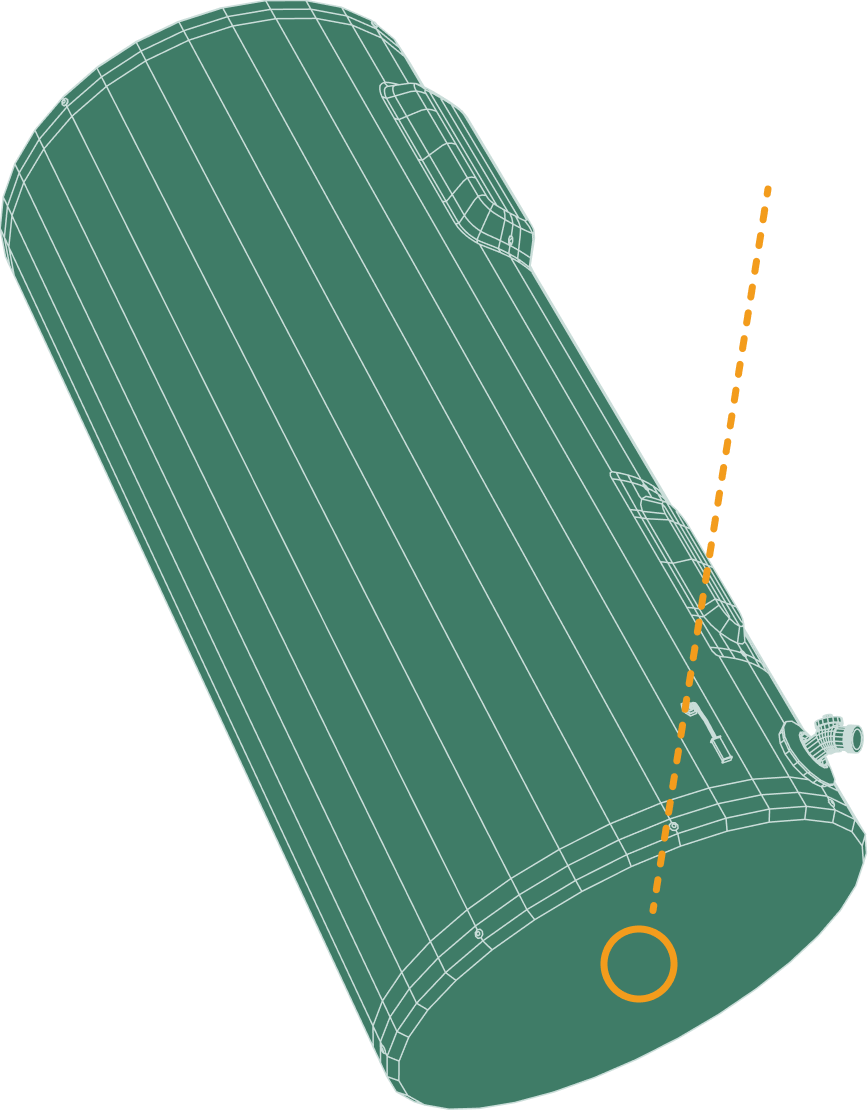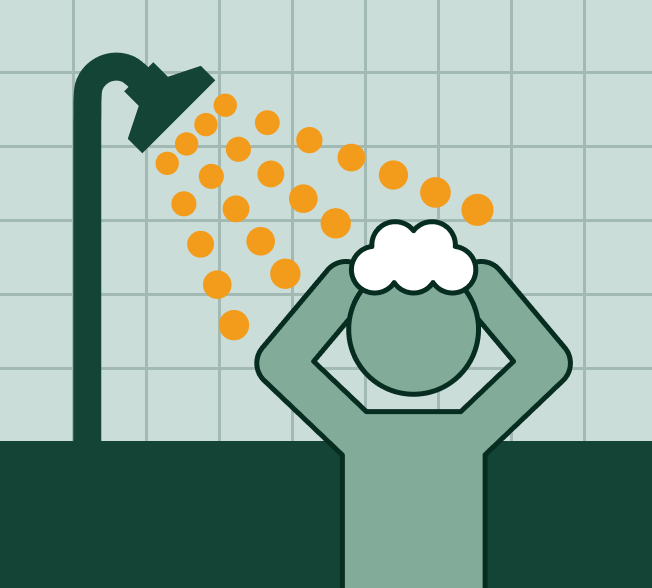What Is Hard Water Stains and How To Prevent It

In different parts of the world, the quality of tap water varies significantly. Particularly in many regions, tap water carries a high concentration of calcium, making it ‘hard’.
Hard water not only flows through your pipes, but also leaves marks on your plumbing and appliances. It can cause stains or ”soap scum” on glass surfaces and build up sediment in the water heater.
Skip the Details: Here’s How to Prevent Hard Water Stains
For a straightforward solution to hard water stains, look no further than the Corro-Protec powered anode rod. This innovative device tackles the root of the problem within your water heater, preventing limescale formation and thereby reducing those stubborn stains before they even start. It’s an effective, economical choice that offers long-term benefits for your home’s water quality and the longevity of your appliances.
If you’re seeking the ultimate solution to hard water stains, the Corro-Protec powered anode rod is your answer.
Cause and Impact of Hard Water Stains
Hard water stains are caused by limescale deposits, which come from the calcium in the water. These deposits, while occasionally porous, generally form a hard, adherent layer on surfaces they come into contact with. This includes everything that touches the water; from your glass shower door to your toilet bowls. The removal of these stains is often not an easy task.
Beyond the deposits you can see, the impacts of limescale extend further. It can lead to higher energy cost to heat your water or even damage your household plumbing. Build-ups can reduce the efficiency of gas or electric heaters. This can result in higher costs for maintaining a steady supply of hot water.
How to Remove Hard Water Stains
Eliminates hard water stains aren’t just a task that can be checked off a list once completed. These persistent stains will be coming back unless the issue is rectified at its root. When water with minerals is heated in your water heater, limescale forms.
Limescale is a hard residue that ends up on your shower walls, faucets, and anywhere else hot water goes.
Descaling solutions
The best way to remove hard water stains is by using a descaling solution. This solution also goes by the names of stain remover or hard water stain removal product. A descaling solution breaks down the limescale, making it easy to remove. You can find them online or in any hardware store.
To use a descaling solution, simply follow the instructions on the bottle. Most descaling solutions need to be left on the surface for a certain amount of time in order to work effectively. After 15 to 30 minutes, scrub the area with a sponge or brush to remove any leftover mineral deposits. Finally, rinse the area and the cleaning solution with clean water.
White Vinegar
White vinegar can also help to break down the mineral deposits and it is a natural solution. Simply mix equal parts white vinegar and water in a spray bottle, and mist the area. Allow the vinegar to sit for about 15 minutes, then gently scrub with a brush or cloth.
For tougher stains, you may need to repeat the process and use a mix of vinegar and baking soda. White vinegar is safe to use on most surfaces, and it’s a gentle yet effective way to clean hard water stains.
CLR Calcium
When battling against stubborn hard water stains, CLR Calcium, Lime & Rust Remover truly stands out. This highly effective product targets three of the most common household stains: calcium, lime, and rust. Well-respected for its proven efficacy.
With its powerful formula, CLR effectively penetrates deep into deposits left by hard water, such as calcium and lime. It actively breaks down these minerals, rendering the deposits easy to wipe away.
Get Rid of Hard Water Stains Once and For All
Corro-Protec Powered Anode Rod is a Long-Term Solution
Effective and economical solutions such as the Corro-Protec powered anode rods exist. This innovative device works proactively, solving the problem at its origin – inside your water heater. By preventing the formation of limescale, it significantly reduces these stubborn stains, providing a cleaner and shinier home.
In the long run, preventing hard water stains can be more cost-effective than repeatedly removing them.
How Corro-Protec Prevent Hard water stains?
The Corro-Protec anode supplies current to destabilize the calcium molecule in water, preventing the usual chemical reaction that forms calcite.
In other words, the current prevents the calcium from becoming solid (calcite) and at the same time, reduces hard water stains. Corro-Protec is the most affordable solution to handle calcite.
Water Softeners: A Proactive but Costly Solution to Hard Water Stains
Water softeners tackle hard water stains by replacing minerals like calcium and magnesium in your water with sodium ions, which prevents the buildup that causes those unsightly marks. This process enhances the efficiency of soaps and detergents, ensuring cleaner, residue-free surfaces.
While they’re an effective solution, it’s worth noting the investment required for installation and ongoing maintenance, including regular salt refills, which contribute to their overall cost. Yet, many find the benefits outweigh these expenses, enjoying spotless fixtures and prolonged appliance life as a result.
Blog
Washing Hair in Hard Water: Your Ultimate Guide
Understanding Hard Water and Its Effects on Hair Hard water, characterized by a high concentration of dissolved minerals like calcium and magnesium, can pose several […]
Effective Strategies to Remove Sulfur Smell from Your Hot Water Heater
Many homeowners face the unpleasant sulfur smell in hot water. This odor, often resembling rotten eggs, can make using hot water for daily tasks unpleasant. […]


4.89/5 Based on 403 reviews
«A friend of mine recommend I try this powered anode after I told him about the rotten egg smell from our well water. It’s been month and so far there is no odor I I think there is less iron staining in out shower.»
Dan F
«I will admit that this Corro-Protec anode rod is everything and more than I expected. I’ve waited 3.5 months to evaluate and can now report that this anode rod really works! My hot water smell has essentially disappeared and the iron stains in the shower have been reduced dramatically. »
Alice D.